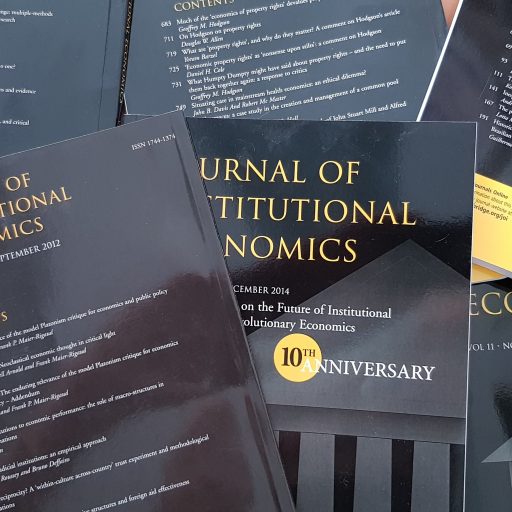Summary of JOIE article “What makes prosecutors independent? Analysing the institutional determinants of prosecutorial independence”, by Stefan Voigt (Institute of Law and Economics, University of Hamburg, Hamburg, Germany) and Alexander J. Wulf (Institute of Law and Economics, University of Hamburg, Hamburg, and SRH Hochschule Berlin, Berlin, Germany). The full article is available on the JOIE website.
In our paper “What Makes Prosecutors Independent?” we analyze the institutional determinants of prosecutorial independence. The prosecution of criminal suspects is an integral part of a country’s justice system. Ideally, prosecutors – together with the police and judges – are central actors in implementing the rule of law. The starting point for our research is the observation that while substantial scholarly attention has been devoted to the study of the police and judges and their relevance to the rule of law, surprisingly little is known about prosecutors. This lacuna of research is not confined to the legal sciences but also extends into the economic analysis of law. This is astonishing since all the institutions making up the criminal justice value chain need to work together to effectively sustain the rule of law. Prosecutors are the link between police investigations and court adjudication and have far-reaching decision-making powers over each criminal case. In the overwhelming majority of criminal justice systems, it is their responsibility to decide whether police investigations will lead to prosecution and thus whether courts will be able to try offenders at all. Prosecutors are, hence, agenda-setters for judges. Prosecutors formulate charges, conduct the prosecution and argue the case in court. If they disagree with the court’s decision, they may typically appeal against its ruling. In the wake of recent developments, the importance of their independence has increased even further. In order to take the strain off overloaded court systems, many jurisdictions have shifted powers and responsibilities from judges to prosecutors. As a result, some scholars consider prosecutors to be potentially the most powerful actors in the criminal justice system.
Our aim in this paper is to contribute towards filling this knowledge gap on prosecutors. We focus on what we consider to be a centrally important factor in the proper functioning of these agencies, namely the degree to which they are independent from the other two branches of government. Although the study of judicial independence is well-established, the study of the independence of prosecutors is not, despite its potential relevance for protecting the rule of law. Without this independence, the executive may exercise undue influence over prosecutors to protect government members, interest groups and supporting elites from criminal prosecution or, on the contrary, use its influence on prosecutors to repress citizens, businesses and political opposition if such behavior promises to enhance its own goals. We summarize the specific interests of government in prosecutorial behavior by using these two paradigmatic cases: in the first case, government has an interest in preventing prosecution of those who are on its side but have committed a crime. Formulated differently: government has an interest in false negatives or type 2 errors. In the second case, government has an interest in having actors prosecuted who are innocent like regime critics. Here, the government is interested in seeing false positives or type 1 errors.
We then set out to identify the factors that determine the independence of prosecuting agencies worldwide. We find that countries of common law legal origin perform better in ensuring the independence of prosecutors than countries of Socialist, German, or Scandinavian legal origin. As this factor cannot easily be influenced by policy-making, we argue that this finding is mainly of academic interest. However, there are also several factors that affect the independence of prosecutors which are susceptible to policy interventions. According to our empirical analysis, freedom of the press is a key guarantor of prosecutorial independence. Furthermore, a law granting immunity to parliamentarians is another factor that contributes to the de facto independence of prosecutors.
We discuss several policy implications of our findings for countries in which the rule of law and criminal justice is endangered. We propose that these countries should aim to implement transparency policies for all institutions in the criminal justice value chain and particularly for the procuracy. We expect that comprehensive and prompt disclosure of information relating to the prosecution or dismissal of cases with a political dimension will allow the press and any other social and political organization to better report on illegitimate dealings between the executive and the prosecution authority. In terms of their economic analysis of the independence of prosecutors, transparency policies increase the costs that the executive must bear for infringing this independence. In the presence of such policies ending a legitimate criminal case or initiating an illegitimate criminal case is more likely to lead to social and political opposition by the civil society. We also find that laws preventing prosecutions of members of parliament strengthen the independence of the prosecution authority and may thus benefit the rule of law and criminal justice. Parliamentary immunity makes it superfluous for the executive to infringe the independence of the prosecution authority in order to protect a member of government from prosecution because such a case cannot be initiated in the first place. An immunity law also greatly increases the costs for initiating an illegitimate criminal case against a politician of the opposition. In the presence of such a law, this action will require a prior lift of the immunity of the targeted politician. Depending on the actual implementation of the immunity law, this lift usually follows a predefined, transparent procedure. It will thus lead to prompt disclosure of comprehensive information on the case. As for their first policy recommendation, we argue that this will facilitate press coverage of the case and consequently social and political opposition supporting the independence of prosecutors is more likely to occur.
Stefan Voigt (Institute of Law and Economics, University of Hamburg, Hamburg, Germany) and Alexander J. Wulf (Institute of Law and Economics, University of Hamburg, Hamburg, and SRH Hochschule Berlin, Berlin, Germany)
